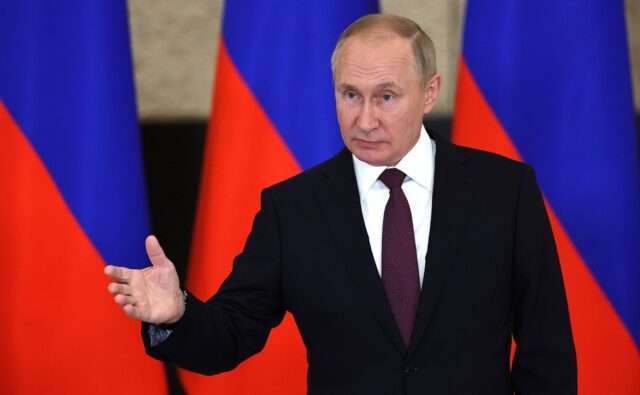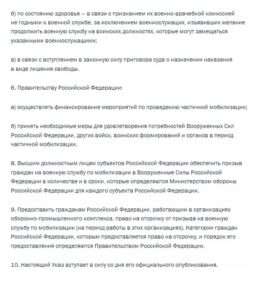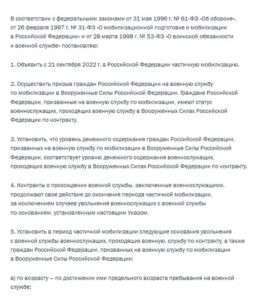Ukraine conflict: Putin declared the partial military mobilisation

In a video message, Russian President Vladimir Putin declared the partial military mobilisation, confirming the difficult situation that the Russian troops are experiencing in the Ukraine conflict due to Kyiv’s counter-offensive to reconquer Donbas and Crimea.
Russian President Vladimir Putin made a video message in which he spoke about the progress of what he called “a special military operation to demilitarise and denazify Ukraine and liberate Donbas” and measures to protect the sovereignty and integrity of Russia. In his address, the Russian President said that partial mobilisation was beginning in Russia.
Putin justified his decision by stating that:
“To protect our Motherland, its sovereignty and territorial integrity, to ensure the security of our people and people in the liberated territories, I consider necessary to support the proposal of the Ministry of Defense and the General Staff to conduct partial mobilization in the Russian Federation.”
Putin stressed that only those in the military reserve are subject to conscription, primarily those who have done military service and have experience. Before being sent to the unit, they will undergo additional training (RIA Novosti).
Why does it matter?
The partial military mobilisation confirmed the difficult situation of the Russian troops on the Ukrainian territory and marked the beginning of a new military phase in the Ukraine conflict. Since the beginning of the military operations in Ukraine, the Kremlin has neither achieved strategic security by controlling and securing Donbas nor limited the financial damages caused by Western sanctions.
Before this partial military mobilisation, the Ukrainian armed forces, supported by U.S. and Western Intelligence agencies, had achieved some military victories even though Russia had not lost the conflict. Before today, the Russian Federation had deployed a limited number of military troops. In the last six months, the Kremlin has adapted its strategies in Ukraine to the different situations on the ground. The partial military mobilisation declared to “defend the sovereignty of the Russian territory” highlighted the Kremlin’s ability to face military issues in Ukraine and elevate the level of the conflict.
Whereas the Kremlin cannot rely on the Chinese or other allies’ military support, as the first six months of war have demonstrated, the Russian Federation decided to mobilise more troops to secure and stabilise Donbas and other military positions in the Ukrainian territory.
On the other hand, considering the partial military mobilisation, although Ukraine can count on a larger army whose soldiers fight for their homeland and families, a complete Ukrainian victory against Russia and pro-Russian forces in Donbas and Crimea seems far from being achieved, especially if the Kremlin can put now on the ground an additional 300 thousand soldiers.
Therefore, the conflict might last longer until Europe and the United States might financially and military support Ukraine, and the Russian Federation might counter Western sanctions with new economic cooperation and agreements with Asian partners and simultaneously satisfy the demands of one’s nation, avoiding any internal disappointment and dissent.


For further reports, risk assessment and geopolitical scenarios regarding Russia and the Ukraine conflict, feel free to Contact Us and discover our services.
